How we made fork of the Russian Leroy Merlin to Kazakhstan
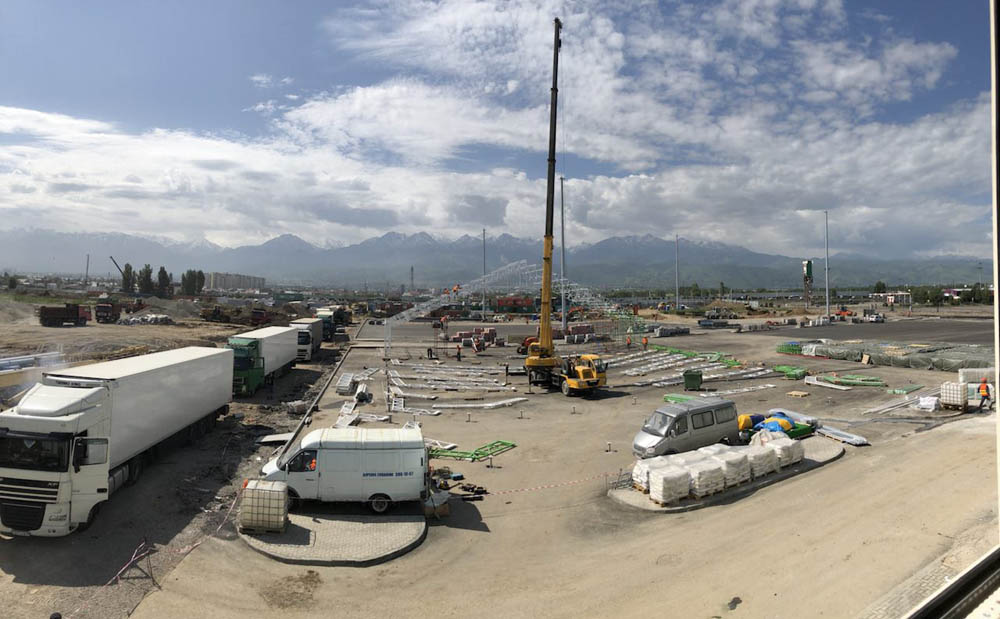
It was necessary to have time to adapt all IT systems until the end of the store construction.
In 2016, it was decided to open a store in Kazakhstan (in Almaty). In the logic of the Adeo group of companies (these are all Leroy Merlin stores around the world), for each new country you need to create a separate business unit with its own infrastructure and everything and everything. For example, Ukraine is a separate unit of five stores with all its own divisions, services and IT processes.
In Kazakhstan, we decided (for the first time in the history of the company's development) to fork the Russian infrastructure, effectively expanding our systems to a new region. Why? Because procurement, supply chains, legal and financial services are centralized. Markets are close. The legislation is close, although it has its own peculiarities (each department revealed differences for itself with the help of colleagues from the legal department). This is a Eurasian Customs Union. We had 90 stores in Russia, and it was possible to buy under conditions that suppliers in Kazakhstan simply would not give, and there was not much local production. We have a lot of streamlined processes, working software, and so on.
')
It remains only a little screw a couple of IT systems. Simple work of the year and a half, because I had to rewrite not everything, but very, very much. It began with the fact that, it turns out, it is necessary to sign additional agreements with 800 suppliers so that their products are correctly labeled and certified if necessary. So that in Kazakhstan they could be correctly taken into account, respectively, and correctly printed a price tag on which, by law, the name of the goods must be in the Kazakh and Russian languages.
On this surprises just started.
I'll tell you about the biggest things - in principle, there are hundreds and thousands of small changes behind these processes, but you can imagine the scale yourself.
Staff
We use BOSS-Kadrovik in Russia, but in Kazakhstan it simply does not exist. But there is 1C ZUP KZ. And there they are ready to support him. Actually, there are no problems to keep records of personnel in 1C. There is a complex integration: we send data from 1C to BOSS-Kadrovik, and then to the parent company in France. There is an international directory that manages accounts. Each country has its own range, and for Russia it is one, and for Kazakhstan - another.
We have Kazakhstan was a continuation of Russia, but the logic of individual records had to be pulled on the logic of the systems, where there are different countries. Accordingly, all the same, data is centrally collected in the Russian Federation and on behalf of the two countries. General statistics on staff (men and women, the percentage of absenteeism due to illness, and so on) is submitted to France.
Everything would be fine if it were not for the Personal Data Act. I had to accumulate personal data on the territory of Kazakhstan (this is where 1C came in handy), and then send it to us and to France (from us). And to us the part of the data which is not exceeding the volume of the stored local data leaves.
It would seem that at the planning stage everything was thought out, the lawyers gave comments, they checked the scheme several times - it works. But at the implementation stage, problems got in, since the test database was from random Russian names. And in the Kazakh language there are symbols that are not in Russian. BOSS-Kadrovik on our side began to damage the names. I had to change the encoding to Unicode. If you think that it’s once to get into the configuration file - and that’s it, then I can say that you have been very lucky in life so far.
That is, we had three large-scale rework:
- Implement a new instance of 1C and learn how to work with it, agree on the spot for support and maintenance.
- Integrate the Kazakh 1C with the Russian BOSS-Kadrovik (in particular, taking into account the international peculiarities of the documentation for which the Personnel from the box was not intended).
- Separate data catalogs for countries and send them separately to France in the right format for France.
Catalog
In Kazakhstan, it is necessary to print price tags and checks. They, oddly enough, should contain the name of the goods in the Kazakh. To print a check or price tag, you must have:
- Product in stock.
- Translation of the name of this product.
To the product appeared in the range, it must be properly shipped and properly accounted for. The first thing I had to do was learn how to sell. In Russia, moving goods between a warehouse and a store is just a movement within a group of companies. To move goods to Kazakhstan, you need to sell it. Because of the transfer pricing rules of the Customs Union, it is necessary to sell it at a price not lower than the wholesale market price so as not to create unequal competitive conditions for retail in the Kazakhstan market.
To sell goods from Russia to Kazakhstan, you need to make an export operation. To do foreign trade activities, you need to re-mark the product so that it has the necessary details for Kazakhstan. Among such details there are customs codes TNVED.
In order to sell goods on the territory of another country, you must comply with the labeling rules. And for this you need at least to write on the package all relying requisites in Kazakh. Even on the mop there should be a sticker with the instruction (from one sentence), and if now it was only in Russian, now it was needed in two languages.
When you once again read the air freshener in the toilet, think about it. Look for the KZ language icon next to RU.
Goods - 35 thousand. There are approximately 800 suppliers. We have signed an additional agreement with each to the new labeling agreement. If you didn’t go through such a process, I’ll explain that it may take a year, because each individual supplier needs to individually explain the certification and labeling requirements. And then he calls back a week later to clarify how to correctly. Once again. And further. Sometimes a supplier called Almaty store employees to arrange a transfer on a label.
Someone labeled the whole party without exception, someone looked at the type of order and, if the party went to Kazakhstan, then put additional stickers.
Additional stickers are, in particular, additional certification of the fact that the goods pass according to the norms of Kazakhstan. Fortunately, some of the products according to certification standards were compatible with Russian standards, and the display of one certificate made it easier to obtain another.
It didn't work out with everyone, so we organized a separate marking process at our warehouse.
Fortunately, for our own goods not for sale (working clothes, for example), this is not necessary.
There were questions of intellectual rights: somewhere, trademarks were occupied, and suppliers renamed goods for export. Also not the most obvious and not an instant process. We tried to help as best we could, but did not want to do all the work for our suppliers.
All exports must pay VAT. Then we learned how to manage currencies and different VAT rates. We learned how to print documents in order to send cars from the warehouse for crossing the border.

Shipment of equipment for the store.
Local suppliers
Not everything needs to be taken from Russia. It was necessary to adapt the procurement processes of both commodity and non-commodity assets. Somewhere it was more convenient to buy a uniform on the spot. A part of IT equipment was purchased locally. A number of goods from the local market turned out to be cheaper than during transportation (even taking into account that in Russia there was an order for 90 stores, and here - for one). Running a little ahead: a local assortment appeared, which simply wasn’t sold in the Russian Federation.
It took a separate contract of each supplier with a legal entity - Leroy Merlin Kazakhstan LLP.
Added about 35 more suppliers.
Adaptation of pricing processes
35 thousand goods had to be recalculated taking into account overhead costs and transfer pricing requirements. And as part of our pricing policy. Previously, we thought so only the prices of goods for the flow of direct imports to Russia, of which there were not very many.
Now almost all the products of the new store were going through this process.
What is especially difficult - the cost of goods has changed. In particular, the sale price from the Russian Federation to Kazakhstan. In particular, imported goods from Europe or China - too. As a result, we agreed on new rules of calculation.
It was important to take into account the requirement of transfer pricing so that the money from country to country did not overlap.
We thought to just roll the fork of the import calculation block with a couple of changes, but in the end it was a big project with a team of financiers, lawyers and even marketing.
In parallel, construction was underway, which imposed a time limit.
We looked at the reports and were glad that we could scale resources in our teams:
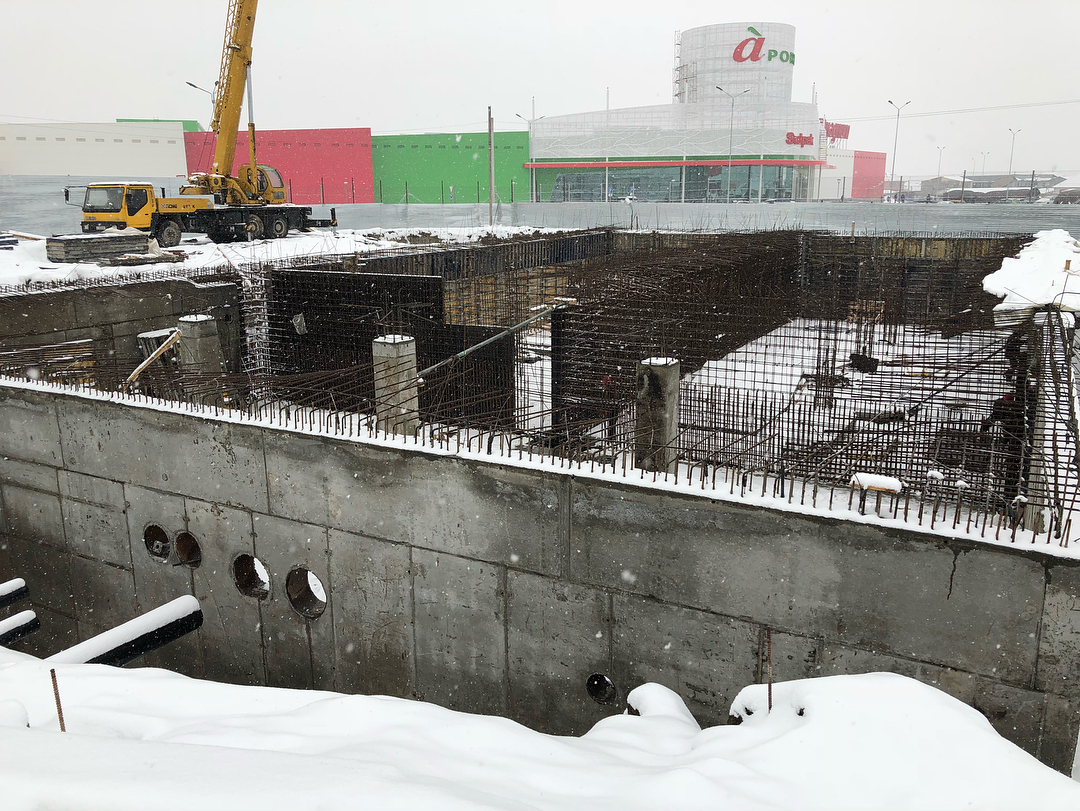
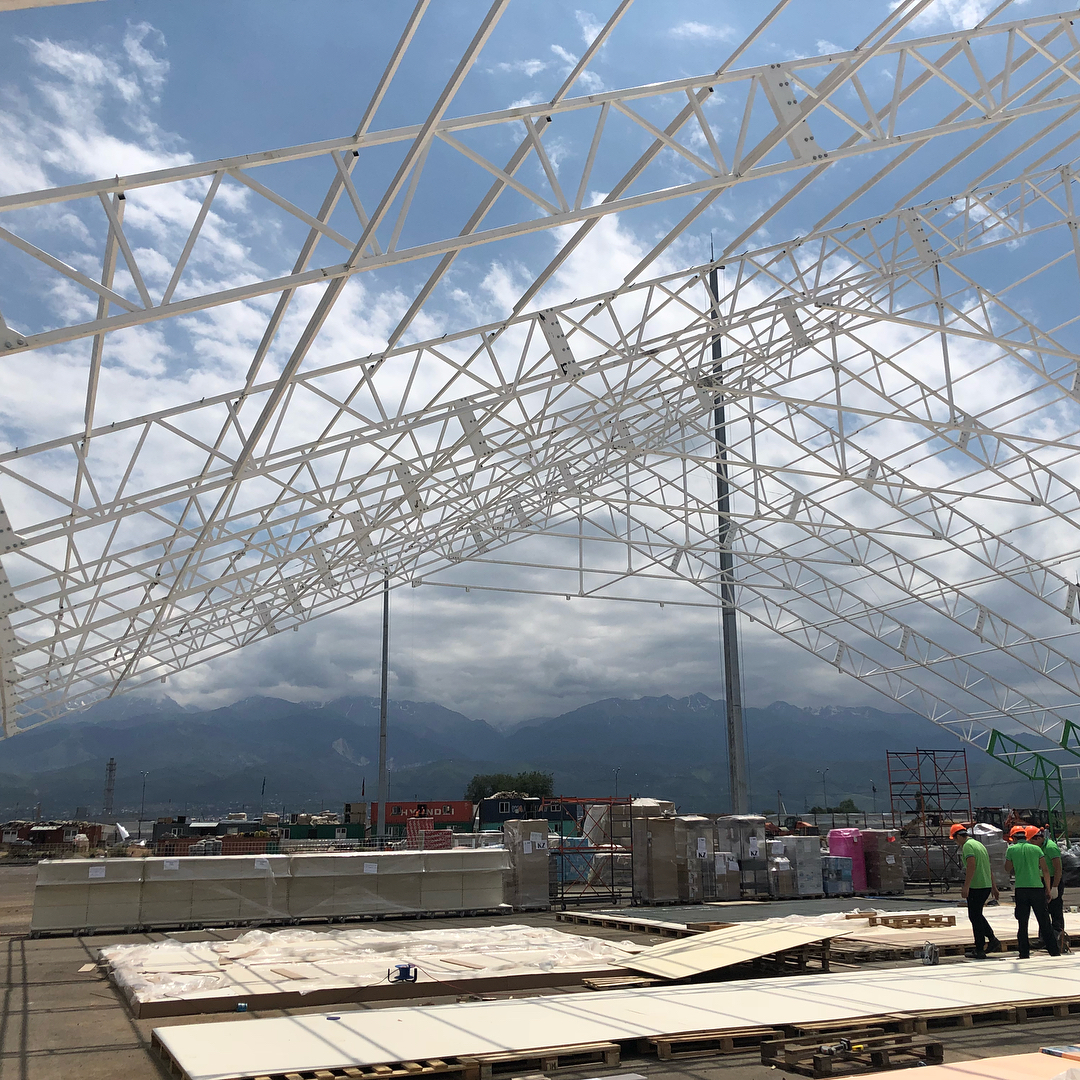
Tent / pavilion under the garden / garden.
Here is the trading floor and cashier line:

Later:

Stock.
More later:

Stock.
Almost before opening:

Adaptation of quality processes
As I already said, certification and labeling of goods were needed in accordance with the requirements of Kazakhstan. This caused a small cascade in the product accounting system, its establishment in the assortment and warehouse rules. It was important to separate the goods that can be shipped to Kazakhstan from the goods that cannot yet be shipped. And it can be two parts of the same party of lampshades. Just because of the different stickers on the boxes.
And it would be good if these lampshades were not a separate nomenclature, but were taken into account as original ones too, so that we would not reload the warehouse with the same goods.
Adaptation of supply chain processes
It was necessary to form shipping documents at the warehouse during shipment to cross the border.
As a result, a separate type of warehouse was needed - a hub. The goods are accepted from the supplier to the warehouse in the territory of the Russian Federation, and then shipped (read - sold) to Kazakhstan. It was necessary to separate the threads, so it turned out to be very convenient. Then the goods are sent to another country.
It took several subsystems and warehouse processes to change. We are talking about the adaptation of accounting financial and warehouse systems.
Adaptation of accounting processes
Here it was necessary to re-sort all the processes. We are accustomed to working with Sberbank and Raiffeisenbank, with them were polished processes.
Surprises began on such simple things as the collection process. In Russia, contactless collection is done everywhere in Russia - this is when there is a safe gateway. On the one hand, money is put into it, on the other hand (from another room) it is taken out by collectors. And in Kazakhstan there is simply no contactless process as a concept. In the local cultural code it is very necessary that people look at each other, even if they do it through armored glass. One more requirement of the bank is the purchase statement: it is necessary to put money into bills and coins and take their amount into account. In the Russian Federation there is no such thing.
It took a separate payroll bank. There is VTB, but this is not the VTB that we have: it is a separate legal entity with its own localization and its own characteristics. The same story was, for example, with Beeline: here we work over the Internet with them often, and there Beeline does not provide Internet services at all. So the bank did not match the API a bit.
The main changes are adaptation to the chart of accounts in Kazakhstan (mapping of accounts). Local bank in the process of collection and acquiring.
Personal Information
It needed a customer base located in the data center in Kazakhstan (the requirement of the Personal Data Act). After all of the above, I think I can say: “We just opened the data center and went further,” and this should not surprise you much.
With the discovery and integration, there were difficulties in the fact that when you started the data center, you needed constant communication with the parent companies, the “mother” IT department and security personnel. And with the Russian department - too. And this is a difference of two and three hours. When at 9 am the French colleagues turn on their laptops, in Kazakhstan it is already 1 or 2 pm - depends on the season. That is, the work went in a peculiar way: everything external was moved for half a day, and the rest of the time they were cached the next day in the works.
National domain
By law, you need a site in the local second-level domain. It's just that simple when you already have a data center.
It is difficult that it had to be translated in a year. Those 35 thousand products and more category pages and information pages. This is not a Russian copy - it is a full-fledged bilingual site. Fortunately, the front of a bilingual site after Europe was a standard out-of-the-box thing.
We worked with translators and contractors. Filed pretty quickly, almost six months.
Adaptation of infrastructure and IT services
A separate Active Directory with trust relationships, a separate pool of email addresses with a national domain, a separate fill image with corporate standards, a separate procedure for issuing IT equipment (your balance), your own Wi-Fi in the store.
The process of “a little” was complicated by the fact that our first AD was built 15 years ago, and we had to play archaeologists and reverse what had been done there. As a result, raised from scratch.
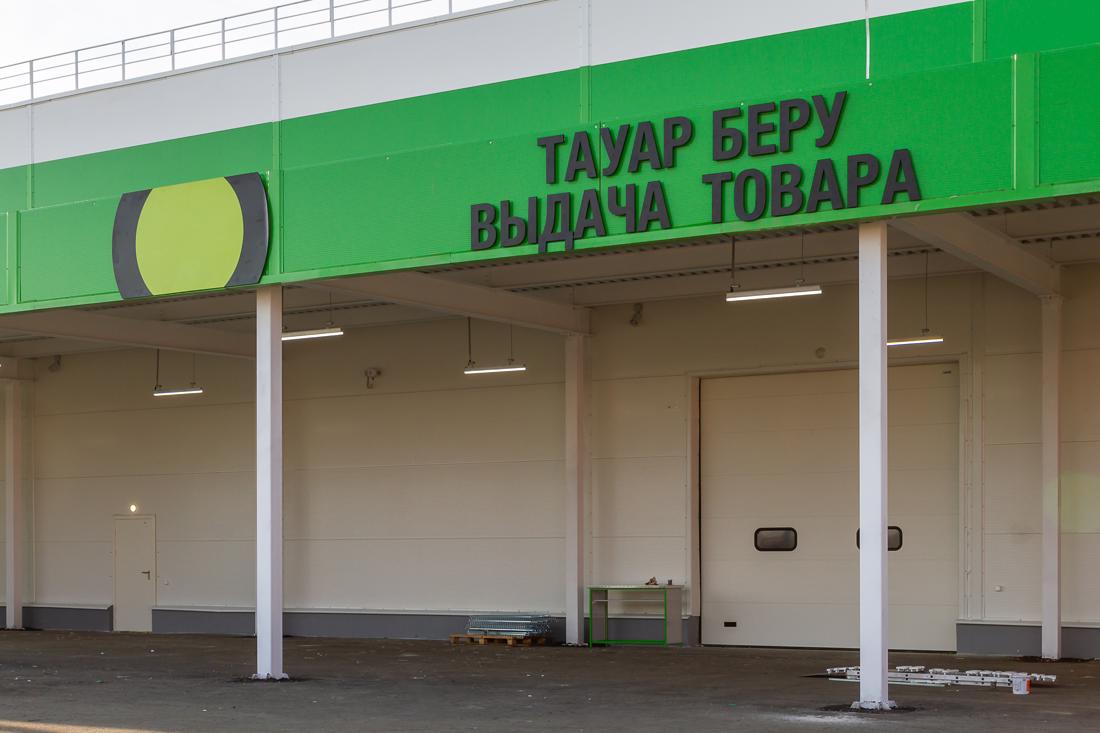
Adaptation of the cash solution
The new bank gave us a new terminal and said that this hedgehog will live with us. In a sense, we had to choose a fiscal solution, and we must choose not just that, but from the national register of decisions. They simply couldn't bring their own from the Russian Federation. There were more requirements for the contents of the check, etc.

In general, we have integrated the new terminal into the cash register system. Not without dancing with a tambourine, of course. The happy result is such adapted sales forms that the seller sends to the customer for payment:

Services
In my plan, this is called “System adaptation and data integration between them, taking into account different currencies, different VAT rates, additional data in the Kazakh language. General and separate copies of systems are used ”. Simply, all our subsystems should have been accessible to Kazakhstan. We either raised in parallel new instances, or left common ones, but somehow we taught them to manage currencies. Somewhere they just cut out a ruble sign, and everything became compatible. And somewhere rewrote business logic from scratch.
Even these things had to be localized:

Opening
The sales department spent quite a lot of time adapting the product range. From what stood out clearly, where carpets are more widely represented. At our opening, the promo zone was all from carpets. Here you can see its edge:
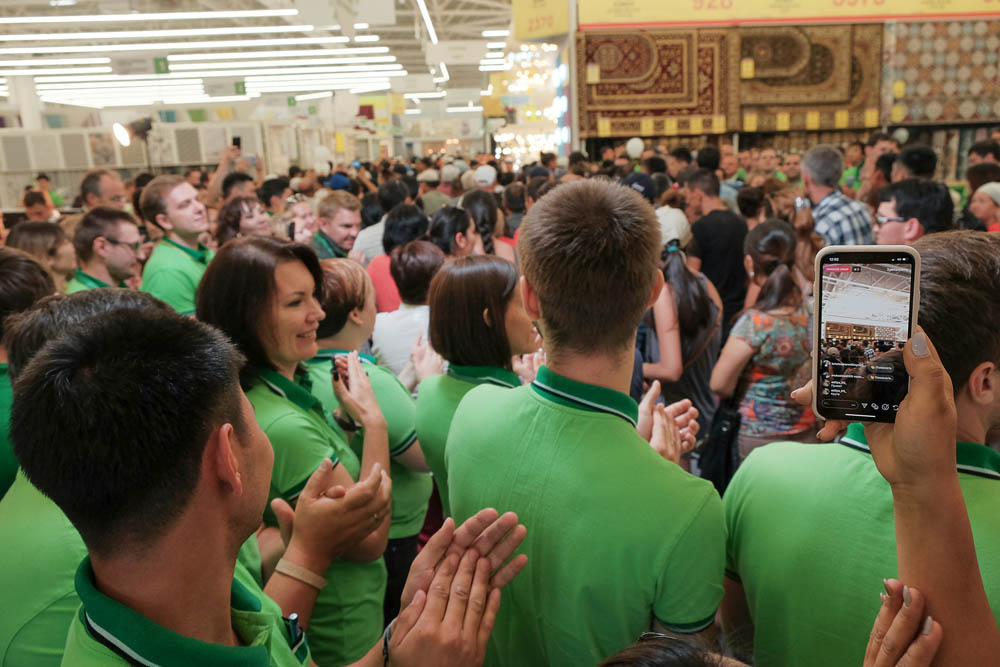

By the way, at the same discovery, we’ve gotten a translation: since all the inscriptions inside the store must also be in Kazakh, we also sent them to translators. And if they saw the product and knew what exactly this translation was for, then short cards arrived here, often representing cutting from different words, from which large blocks are then collected. The same “instruments” for navigation were translated by the word for musical instruments. It almost got on the opening. Without context, it was difficult.
They opened with fun, with performances and fireworks, and all those features of the cultural code, which suddenly slowed down the work before (like the fact that you need to meet in person before the conclusion of the contract is necessary) began to help. Because holidays are something very important. They came to us almost like a neighbor's housewarming, taking the store as part of the city.
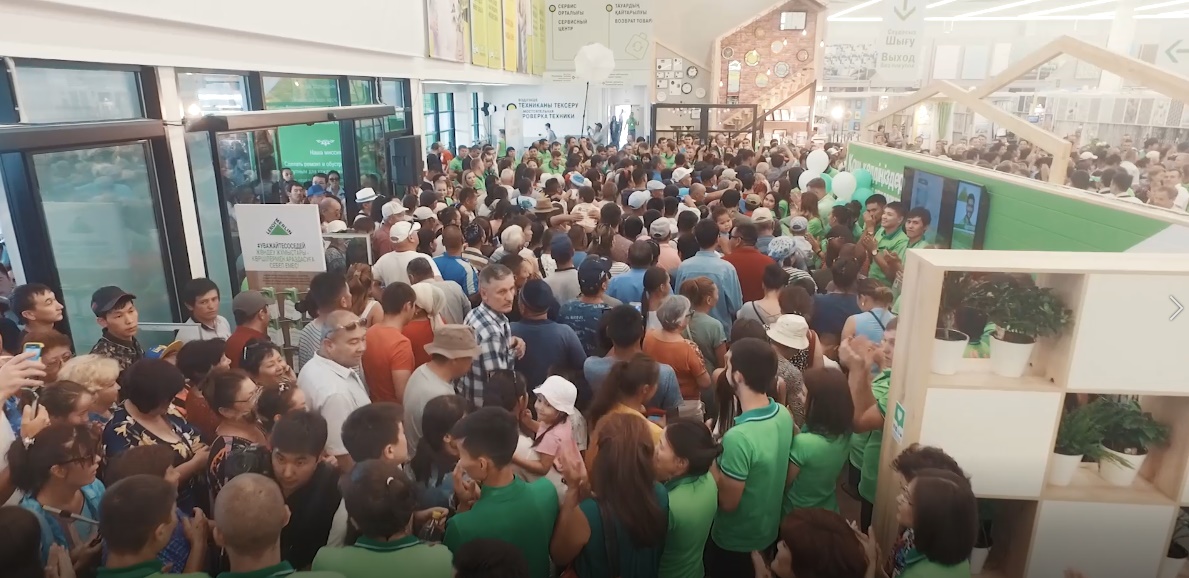
Here is a brief chronology of the process:
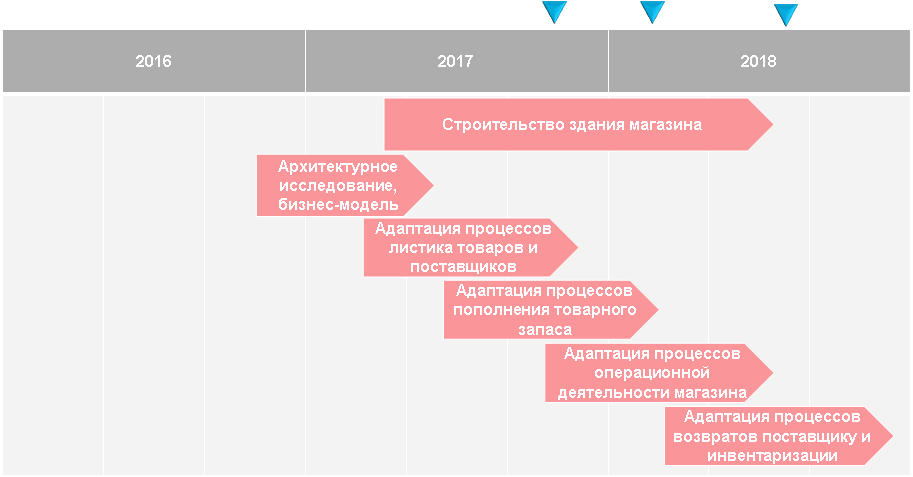
A year before us, they began to give birth to a new unit in the Republic of South Africa - in Johannesburg (they kindly call it Yoburg, which causes us to have completely different associations). They finished it a month after Kazakhstan with all its localizations, i.e. there is something to compare with.
Well, then we repeated the same forced march with the Republic of Belarus. We are opening soon in Minsk. And this is not a copy-paste, as many might think.
Of course, for the accuracy of the process, we should thank our analysts, enterprise architects, developers, testers, specialists from all departments who have planned the necessary actions to adapt processes and systems. There were no surprises. We also had unplanned expenses, but managed to keep everything within the framework.
Source: https://habr.com/ru/post/451406/
All Articles